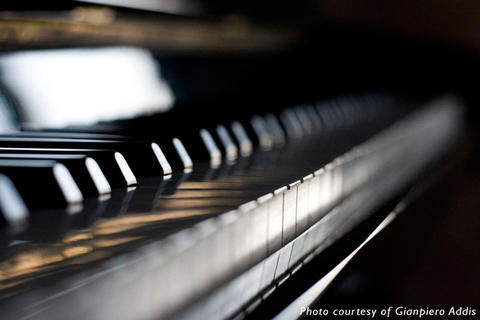
Note: The original version of this post was first published on The Write Practice on September 1, 2013.
Rhetorical question: do you listen to music? What are the songs you keep coming back to savor, over and over again, no matter how “dated” they may be? Whatever your musical taste, there’s a reason to plug in those headphones—or turn on that hot new stereo system you just bought: music enriches your writing.
In fact, I’d go so far as to say the ultimate muse is music. Is it a coincidence that the words are so similar?
Bold statement perhaps, but one that’s sure to resonate with many authors. I’m certainly no stranger to the notes that wind themselves around my pen (remember that old-fashioned writing tool?). Because my writing steeps in a great deal of subtext and implicit emotion, a lot of it is built on music.
My playlists have trotted round the globe and back through time as far back as ancient Persia. I’ve got my faves that can instantly drop me into that deep meditative place I need to craft certain types of stories or passages, other songs whose quick tempo and dynamic rhythm can jazz up any scene, and still others I listen to when I want nothing more than a nice soft background ambience.
You could say I don’t have one muse, but an entire sisterhood of muses. So how does a writer turn them on?
Sound or Silence?
Sure, there are those moments of heady tranquility that can produce pages of great prose, and other moments when being in nature is all the melody you need. The other day when we lost power, my husband commented on how “quiet” everything was suddenly—and you really could FEEL it. I could feel the silence in my bones.
But there’s something about sound that enriches the mental and emotional process of turning thought into story.
Why else would local cafés be packed with writers? Energizing powers of coffee and social ecosystems aside, that low, pleasing background din of a coffee shop is like compost to a story seedling.
Match Your Melodies
Music has the power to transform those vague amoebas of inspiration and creativity into actual words, sentences, and plotlines, to weave an undercurrent of rhythm and motion through your entire narrative, and fuse fragmented dialogue, passages, or images into a cohesive, fluid whole. But you have to know how to—pardon the pun—tune into it.
For me, what works best are songs whose energy and flavor match the energy and tone of the story I’m writing at a given moment. I couldn’t have written my mystery novella Verse in Arabic listening to the “Slumdog Millionaire” soundtrack, for example. The two works clash with one another at their very core; the result would have likely been compared to an ear-grinding first-grade recital instead of Ravel’s Bolero (the latter, my novella actually has!).
Lose It In Translation
I listen a lot to music with foreign lyrics. Why? Because if it’s English, I can too easily slip into listening to those words than write my own. If I can't understand the lyrics, it’s easier for them to blend into the melodious stream flowing through my head.
As with everything of course, this too has its exceptions: I listen to Lana del Rey for some of my work and she sings in English. But her voice is so haunting it doesn’t matter. Her songs run through me the way primordial rivers cut their banks every winter.
A Song a Day…
…keeps writer’s block away. There’s no question writing can take up a fair amount of your mental energy; at times, it can seem that the more you’re stuck on something, be it dialogue, plot point, or coming up with a story in the first place, the more energy you expend trying to break through.
And that can hurt. Ever try putting your fist through a block of wood?
Martial arts philosophy teaches us that it’s all about energy. With the proper training, you too can barrel through that wooden block without nary a scratch on your delicate skin—or through your writer’s block without flexing those neurons any more than you have to.
Given the right melody, and knowing how to listen to music. Music carries energy, emotion, nuance, meaning. Music can turn your world upside down, color it every shade known to the human eye, and completely alter your sense of reality. Like images, embedded within the streams of mathematical structures and symmetries we call music swim countless impossibly intertwined concepts, stories, realities—worlds that we writers have the tough job to try and translate into words.
This is what you need to learn how to access, yes just by listening; but once you do, you will have oceans of inspiration literally at your eartips.
The Proof is in the Harmony
According to science, listening to music has some impressive physiological benefits. I’d include verbal and artistic expression to those benefits. Music has been shown to lower anxiety, increase pleasure (who didn't know that), and activate regions of the brain involved with memory, attention, and planning—gosh golly gee, could those possibly be involved with writing in any way?
So pack up that laptop, headphones, and a stack of dark chocolate bars (yes, chocolate! but that's another post for another time...), and get thee to a coffee shop. Your muse awaits.
What does music do for your writing? Tell us how your muse moves you.







